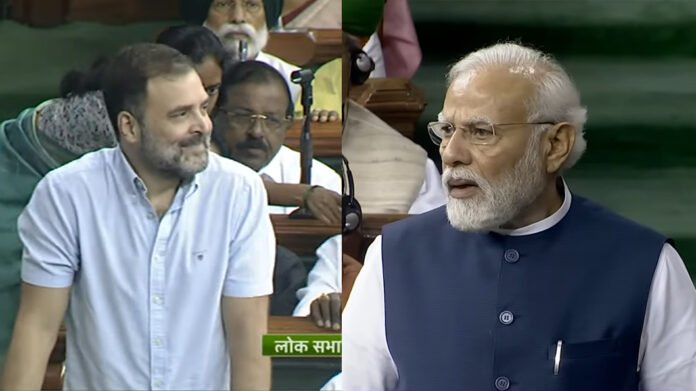The Indian political landscape has recently witnessed a significant controversy stemming from Prime Minister Narendra Modi’s speech in Parliament, prompting the Congress party to take a decisive step. In a letter addressed to the Speaker of the Lok Sabha, the Congress party has formally requested action against PM Modi for allegedly making ‘factually incorrect’ statements during his address. This development has intensified political tensions and raised fundamental questions about parliamentary decorum, accountability, and the responsibilities of elected leaders.
Prime Minister Narendra Modi’s speeches in Parliament are closely scrutinized, given their impact on national policy discourse and public perception. In his recent address, PM Modi made several assertions regarding the government’s achievements, policies, and economic performance. However, the Congress party has contested the accuracy of these statements, accusing PM Modi of misleading the Parliament and the nation.
The Congress party’s letter to the Speaker highlights specific instances where PM Modi’s statements were deemed factually incorrect or misleading. These include claims related to economic growth rates, employment figures, agricultural policies, and the implementation of welfare schemes. The party argues that such inaccuracies undermine the integrity of parliamentary proceedings and erode public trust in democratic institutions.
Accusations of ‘factually incorrect’ statements in parliamentary speeches are not uncommon in Indian politics. They often serve as catalysts for heated debates, political confrontations, and calls for accountability. In this instance, the Congress party’s proactive stance reflects its commitment to upholding parliamentary standards and holding the government accountable for its claims and actions.
The role of the Speaker of the Lok Sabha, Om Birla, becomes pivotal in addressing the Congress party’s concerns. As the custodian of parliamentary rules and procedures, the Speaker is tasked with ensuring the integrity of debates and maintaining decorum within the House. The Speaker’s response to the Congress party’s letter will likely influence the course of action, potentially leading to further debates or disciplinary measures against PM Modi if warranted.
Beyond the immediate political ramifications, this controversy underscores broader issues of transparency, accountability, and the responsible use of parliamentary privilege. Elected representatives, including the Prime Minister, are expected to uphold the highest standards of honesty and accuracy in their public statements, particularly within the sanctity of Parliament.
Moreover, the controversy has reignited discussions about the role of fact-checking in political discourse. In an era dominated by rapid information dissemination and competing narratives, ensuring the accuracy of public statements by elected leaders is crucial for informed decision-making and public trust in governance.
The Congress party’s initiative also reflects its strategy to leverage parliamentary procedures to challenge the government’s narrative and highlight discrepancies in its policies and claims. By seeking action against PM Modi’s alleged ‘factually incorrect’ statements, the Congress aims to hold the government accountable and safeguard the integrity of parliamentary debates.
In response to the Congress party’s allegations, the ruling Bharatiya Janata Party (BJP) has defended PM Modi’s statements, asserting that they are based on verifiable data and government records. The BJP argues that political disagreements should be resolved through constructive debate rather than formal complaints to the Speaker. This stance underscores the ideological divide and political rivalry that characterize Indian politics.
As the controversy unfolds, it has become a focal point for media scrutiny, public discourse, and partisan debates. The outcome of this episode will not only impact parliamentary proceedings but also shape public perceptions of political transparency and accountability.
In addition, the Congress party’s letter to the Speaker seeking action against PM Modi’s ‘factually incorrect’ statements in Parliament marks a significant development in Indian politics. It highlights the importance of accuracy and accountability in public discourse, particularly within the confines of parliamentary democracy. The Speaker’s response and subsequent actions will be closely watched, as they hold implications for parliamentary standards, political accountability, and the credibility of elected leaders in India.
